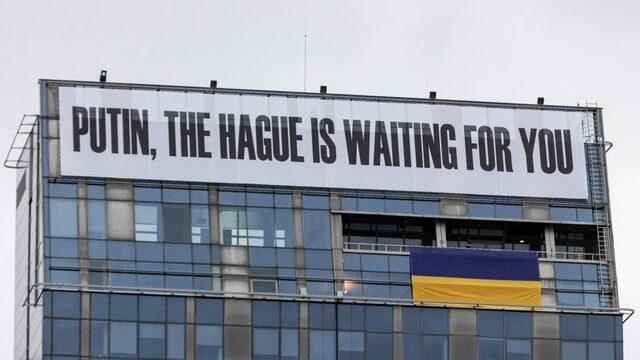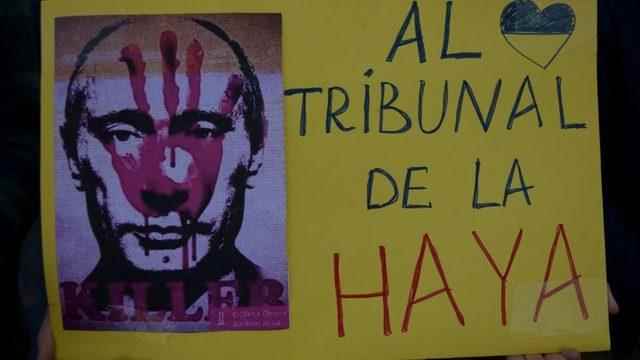After the invasion of Ukraine, the allegations that Russian President Vladimir Putin committed “war crimes” and that he should be brought to justice in The Hague, Netherlands began to be voiced more loudly.
The Hague, which is one of the first places that comes to mind when “justice” is mentioned in the world and many countries want Putin to be sent, reached its current status as a result of the contribution of another Russian leader.
39 countries, including the UK, the Netherlands and Belgium, applied to the International Criminal Court in The Hague this week to investigate the war and crimes against humanity in Ukraine.
Karim Ahmed Khan, the chief prosecutor of the court in The Hague, announced that he has launched an official investigation.
In order to keep in mind the expectation that Putin and the Russian administration will be tried in an international court, traffic signs placed at many points in Ukraine indicate that “all roads lead to The Hague”.
The Hague is home to a large number of international law institutions.
Contribution of Tsar Nicholas III of Russia
So how did this quiet city on the North Sea coast of the Netherlands become the world’s “city of justice and peace”?
One of the biggest contributors to the transformation of The Hague, the center of government of the Netherlands, with a population of approximately 515 thousand, to become a “city of justice” was Russian Tsar Nicholas III.
At the initiative of the Russian Tsar, the first peace conference was held in The Hague in 1889.
What to do and what not to do in wars was discussed at this conference. The peace conference was repeated in 1907. Decisions such as bombing from hot air balloons and banning the use of chemical weapons were made in The Hague.
A “Permanent Court of Arbitration” was established at the Peace Palace in The Hague to determine whether the warring parties followed the rules.
This was followed by the establishment of the Permanent Court of International Justice in 1922. This organization turned into the International Court of Justice, which was established by the United Nations in 1945 after the Second World War.
In addition to the International Court of Justice, which deals with disputes between states, the International Criminal Court was also established in The Hague to try individuals.
Based on the Rome Statute and established in 2002, the court dealt with the crimes of war, humanity and genocide committed after the dissolution of Yugoslavia in the 1990s.
Several defendants, including Serbian leaders Slobodan Milosevic and Radovan Karadzic, appeared in court in The Hague.
In addition to the War Crimes Tribunal for the former Yugoslavia, the Iran – USA Tribunal of Claims, Lebanon and Kosovo courts were also established in The Hague.
Former Kosovo President Hashim Thaci and top executives of the Kosovo Liberation Army (UCK) accused of committing war crimes during Kosovo’s independence are in custody in The Hague.

US sanction
The International Criminal Court’s decision to investigate war crimes in Afghanistan, which mainly deals with war crimes committed in Africa, caused a reaction from the US administration.
The Washington administration decided to sanction the members of the court because of this decision.
There are also different institutions and organizations with similar qualifications in The Hague.
Many international organizations such as the United Nations Organization for the Prohibition of Chemical Weapons (OPCW), the European Union Police Service (Europol), the European Union Judicial Cooperation Agency (Eurojust), the Benelux Intellectual Property Office (BOIP) and the European Patent Office (EPO) are also in The Hague. exists.
Dutch media are debating whether the Hague, which has turned into a “city of justice and peace” with the initiative of Russian Tsar Nicholas III, can bring Russia’s last leader, Putin, to court.
Russia is not a party to the International Criminal Court.
